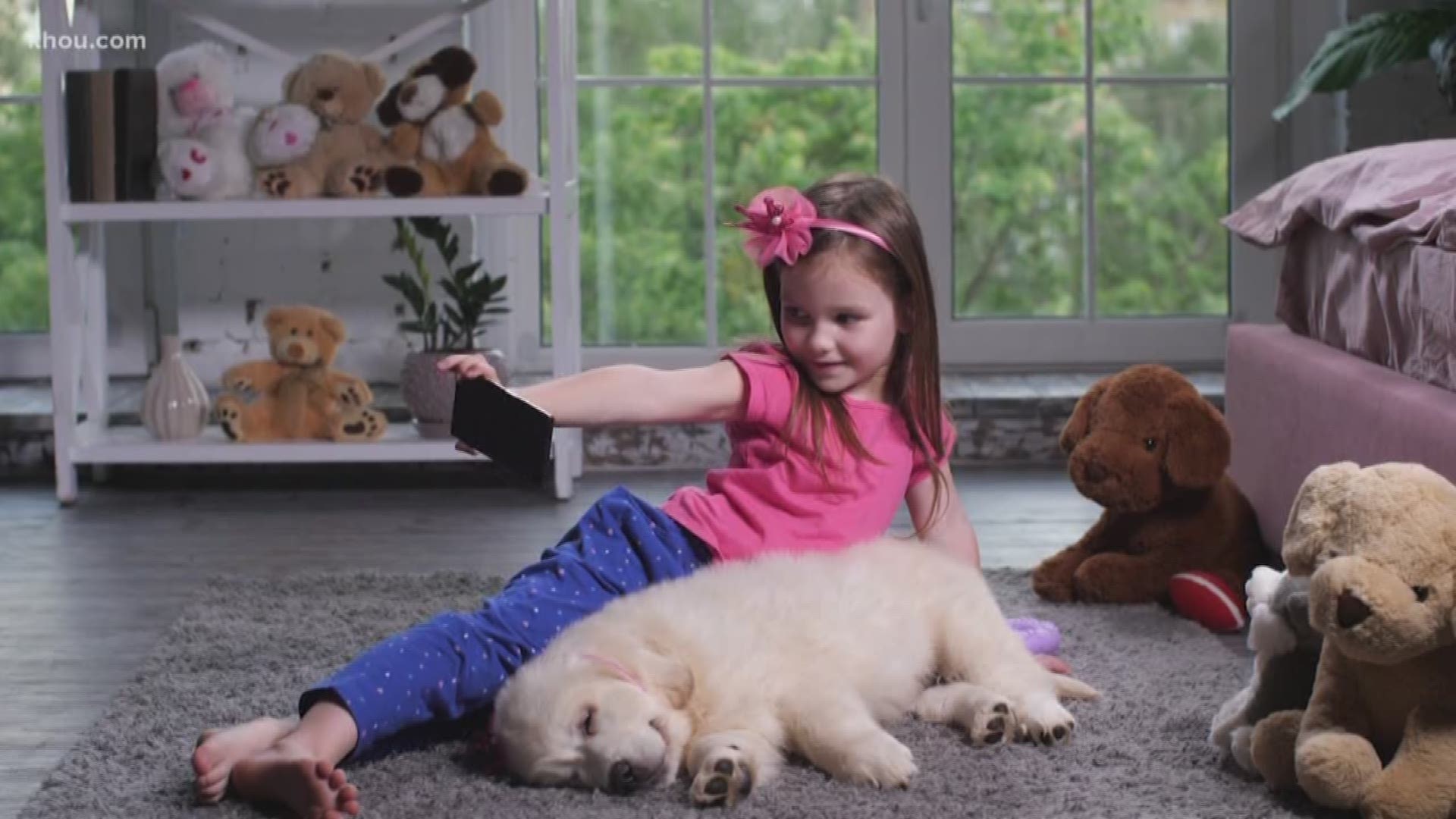HOUSTON — Who doesn't love a good selfie? They dominate social media. The photographs people take of themselves drive us as a society to pose and post and scroll and "like" at a fever pitch.
In May 2019, Google reported its Android devices take 93 million selfies per day. In one poll, 18-to-24-year-olds reported every third photo they take is a selfie. Some subjects in one study reported taking more than eight selfies a day.
"Particularly for women, the objectification of women’s bodies in the United States is something that we grapple with culturally," said Dr. Laurel Williams. "So what we know is that women in particular seem to be more and more focused on their appearance to the detriment of their mental health."
Dr. Williams is on the faculty at the Baylor College of Medicine, and she's the Division Head of Child and Adolescent Psychiatry for Texas Children's Hospital. She works with children and their families who mentally struggle with social media.
"So we have more evidence of them being depressed and anxious the more that they use social media," Dr. Williams said of children. "Particularly the social media that is about pictures and looking at pictures...With girls, there’s a lot of focus on their appearance and their body. And so a lot of the social media that girls use is around pictures like Snapchat and Instagram where they’re taking pictures and then comparing each other."
How much time are kids spending on social media?
Dr. Williams says, on average, kids spend three to six hours per day shifting among at least three different social media apps.
"One of the things we discovered is that even when women are not on social media or Instagram, they might be thinking about it," Dr. Williams said. "For example, if you’re walking down the street, you might be imagining, well, what if somebody took a picture of me right now? So you’re kind of focused on that and not focused on your task of the day."
Dr. Williams said real anxiety and pressure and stress is rooted in the idea kids have that they should be ready to take a social media-perfect selfie at any point in their day.
That behavior doesn't pop out of the sky. It's learned.
"Parents are still influencers," Dr. Williams said. "Particularly for that kind of media that’s about pictures and likes, it does negatively impact how they look at their body and how they feel, as far as depression and anxiety."
Those big emotions and feelings are why kids need to seek professional help at a young age. Doctors don't yet know what the lifetime effects of social media will be. But they do know parents can help control the experience by doing three things.
1) Restrict/limit use: "The upshot is it fits with what we know about parenting already," Dr. Williams said. "It’s not a new thing a parent has to do. But it really is this idea that you do need to restrict. You as a parent can set a limit and it can be a family limit so that you’re showing that you’re going to be part of that limit as well."
2) Give your child context to the pictures you're taking and why you are posting them to social media: With young children and adults, we can have conversations that help us understand what we’re doing.
3) Check in with yourself: "Kids are good truth tellers," Dr. Williams said. "That’s the good thing about kids is that they don’t know how to filter themselves just yet. They speak the truth. So if the first thing your child says when you tell them to restrict their media is that, mommy, well, why don’t you restrict your media? Then I think that is a good wake-up call for a parent to sort of do an inventory of themselves and go, you know what? Maybe I am on social media too much."
ALSO POPULAR ON KHOU.COM

